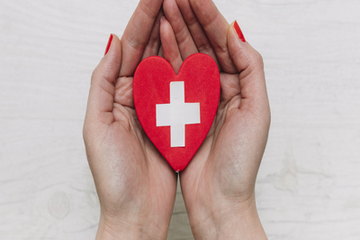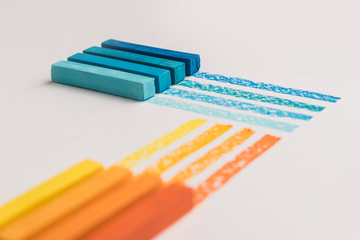Browse
Youth Empowerment
Article with Youtube normal video in thumbnail image
Science and logic are deeply intertwined: Logic provides the framework (deductive & inductive reasoning, structure) for scientific inquiry, helping distinguish valid from invalid arguments, while science uses logic to build theories from observations, but also pushes beyond pure logic with empirical evidence to discover counterintuitive truths about the physical world, making logic a foundational tool but not the entirety of science. Logic helps structure hypotheses and analyze data, but science, through observation, can reveal phenomena that pure logical deduction might miss, like quantum mechanics.
How Logic Functions in Science
Foundation of Reasoning: Logic defines correct reasoning, making it the "science of sciences," essential for systematic study.
Deductive Reasoning: Moving from general principles to specific predictions (e.g., "All swans are white; this bird is a swan; therefore, it's white").
Inductive Reasoning: Building general theories from specific observations, a key part of the scientific method (e.g., Copernicus's observations leading to heliocentrism).
Hypothesis Testing: Science uses logic to form testable hypotheses (e.g., "I expect A because B," where B is the hypothesis) and evaluate expectations.
By:
Shani new
Friday, Jan 16, 2026
AGRI-FOOD SYSTEMS
+7
Leave a comment
Article with PNG type thumbnail image
The Food Pyramid – A Guide to a Balanced Diet
The Healthy Eating Food Pyramid
Balanced diet is a key to stay healthy. Follow the "Healthy Eating Food Pyramid" guide as you pick your food. Grains should be taken as the most. Eat more fruit and vegetables. Have a moderate amount of meat, fish, egg, milk and their alternatives. Reduce fat/ oil, salt and sugar. Trim fat from meat before cooking. Cook with low-fat methods such as steaming, stewing, simmering, boiling, scalding or cooking with non-stick frying pans. Also reduce the use of frying and deep-frying. These can help us achieve a balanced diet and promote health. How much of different kinds of food should I eat to stay healthy?
Eat the Right Food
Since different foods have different nutritional values, it is not possible to obtain all the nutrients we need from a single food. According to the Healthy Eating Food Pyramid, we have to eat a variety of foods among all food groups as well as within each group in order to get different nutrients and meet our daily needs.
Eat the Right Amount
Neither eating too much nor too little is good for our health. Every day, we need a specific amount of nutrients to maintain optimal health. If we do not eat enough, malnutrition or symptoms of nutrient deficiency are likely to develop. In contrast, excessive intake can result in over-nutrition and obesity. Therefore, we have to eat the right amount of food to stay healthy.
Healthy Eating Food Pyramid
Eat Most - Grains
Eat More - Vegetables and fruits
Eat Moderately - Meat, fish, egg and alternatives (including dry beans) and milk and alternatives
Eat Less - Fat/ oil, salt and sugar
Drink adequate amount of fluid (including water, tea, clear soup, etc) every day
By:
Shani new
Wednesday, Jan 14, 2026
AGRI-FOOD SYSTEMS
+7

Leave a comment
"Art of Life" generally refers to finding fulfillment through practices like yoga, meditation, and wisdom, often associated with the global non-profit The Art of Living Foundation, founded by Sri Sri Ravi Shankar, focusing on stress relief and human values. It also describes life's journey of finding joy and meaning, encompassing acceptance, present moment living, and building strong relationships. Less commonly, it can refer to artistic works, like the epic song by Japanese metal band X Japan. Key Concepts & Practices: Spiritual & Mindfulness: Using breathing techniques (like Sudarshan Kriya), meditation, and yoga to cleanse the mind and body, reduce stress, and foster inner peace. Humanitarian Values: Promoting a stress-free, violence-free society through education and empowering individuals across cultures. Life Philosophy: Accepting life's opposites, living in the present, not being swayed by others' opinions, and finding purpose beyond oneself. The Art of Living Foundation: Founded by: Sri Sri Ravi Shankar in 1981. Focus: Offers programs for mental well-being, stress management, and personal growth. Methods: Combines ancient wisdom with practical techniques like breathwork and meditation.
By:
Shani new
Tuesday, Jan 13, 2026
AGRI-FOOD SYSTEMS
+7
Leave a comment
Draft opportunity: From establishing tree plantations, not only shall bear fruits, but also, through
From establishing tree plantations, not only shall bear fruits, but also, through soil conservation practices such as mulching, agroforestry, and afforestation, will further create a cleaner planet.
By:
Shani new
Friday, Jan 9, 2026
AGRI-FOOD SYSTEMS
+7

Leave a comment
A healthy lifestyle involves balanced nutrition, regular physical activity, sufficient sleep, and ma
A healthy lifestyle involves balanced nutrition, regular physical activity, sufficient sleep, and managing mental well-being to reduce disease risk and improve overall quality of life, focusing on consistent, positive habits like eating fruits/veggies, staying hydrated, exercising daily, limiting processed foods/sugar, and connecting socially. It's about making choices that support your physical, mental, and social health for a longer, more energetic life, rather than just avoiding illness.
Core Components
Nutrition:
Eat plenty of fruits, vegetables, and whole grains; limit sugar, salt, saturated fats, and processed foods; drink lots of water.
Physical Activity:
Aim for at least 150 minutes of moderate activity weekly (e.g., brisk walking, sports, dancing) or 75 minutes vigorous activity, breaking it up if needed.
Sleep:
Get 8-10 hours of quality sleep each night to support physical and mental recovery.
Mental Health:
Manage stress, stay socially connected with friends/family, engage in hobbies, and limit screen time.
Avoid Harmful Habits:
Don't smoke, limit alcohol, and practice safety (seatbelts, helmets). Youtube link: Normal web link:https://www.tutorialspoint.com/sql/index.htm Facebook link: https://www.facebook.com/ Twitter link: https://twitter.com/ https://conta.cc/4mL42ti https://awardfellowships.org/emergingwomeninsciencehttps://networks.h-net.org/group/announcements/20122618/cfp-translation-networks-decolonising-world-1950s-1970s AAP_test@outlook.com https://bw.usembassy.gov/vijayalaxmi@venturit.com malivijaya975@gmail.com https://www.afdb.org/en/vacancy/2026-mo-ibrahim-foundation-leadership-fellowship-program-86981
Understanding Soil Conservation
The Role of Soil Conservation in Sustainable Tree Plantation
Major Threats to Soil Health
Effective Soil Conservation Practices for Tree Plantation
The Benefits of Soil and Water Conservation
The Role of Organic Farming in Soil Conservation
The Importance of Community Participation in Soil Conservation
Conclusion
FAQs
By:
Shani new
Tuesday, Jan 27, 2026
AGRI-FOOD SYSTEMS
+7

Leave a comment
Soil conservation is the act of preserving and managing the soil to avoid soil degradation, --edited
Edited: Soil conservation is the act of preserving and managing the soil to avoid soil degradation, erosion, and nutrient loss; and for the long-term fertility for growth of crops. Soil is the basis of plant life, supports biodiversity, and maintains ecological balance. With respect to tree plantations, it plays a role in tree growth, carbon sequestration, and the preservation of water.
To emphasize the importance of tree plantations to soil conservation is to recognize the fact that trees prevent soil erosion and make the land secure through their roots. Trees also add organic matter that boosts soil, effectively creating ideal conditions for thriving microbial life, allowing nutrient availability. Recognizing the need for tree plantation means recognizing the role of trees in natural protection against desertification and land degradation.
Tree plantations can, thus, protect the environment and contribute to building healthy soils. It, therefore, caters to better agricultural productivity, forest conservation, and climate change mitigation to sustain all mankind. Its purpose also disseminates the restoration of green cover, enhancing soil fertility, conserving water, and maintaining an ecosystem balance.
By putting into focus soil-conservation practices such as mulching, cover cropping, contour farming, and afforestation, we go a long way in ensuring that tree plantations are viable for generations to come in the conservation of our planet's most precious resource-soil.
By:
Shani new
Friday, Jan 9, 2026
AGRI-FOOD SYSTEMS
+7

Leave a comment
The Importance of Soil Conservation in Sustainable Tree Plantation
The earth is the most significant component of life on this planet. Within trees and other flora and fauna, soil can be considered a cornerstone for plant growth, to sustain biodiversity and maintain the overall ecosystem balance. Soils, therefore, become central to be conserved in tree plantations for sustainable development, for preventing erosion, for improving water retention, and for carbon sequestration.
The significance of tree plantation is beyond beautification-it heals the soil. Trees bind the soil, add organic matter, and boost microbial activity; therefore plantation becomes more resilient. Practicing tree plantation is to heal land degradation and maintain balance with the environment.
The importance of tree plantation lies within the very fact that it influences the climate, enhances air quality, and conserves water-both of which depend on healthy soil. Because tree plantation is a very important and effective means of ecological restoration and sustainability.
This blog discusses soil conservation for sustainable tree plantations and good practices to sustain the soil health for a greener future.
By:
Shani new
Thursday, Jan 8, 2026
AGRI-FOOD SYSTEMS
+7

Leave a comment
The earth is the most significant component of life on this planet. Within trees and other flora and fauna, soil can be considered a cornerstone for plant growth, to sustain biodiversity and maintain the overall ecosystem balance. Soils, therefore, become central to be conserved in tree plantations for sustainable development, for preventing erosion, for improving water retention, and for carbon sequestration.
The significance of tree plantation is beyond beautification-it heals the soil. Trees bind the soil, add organic matter, and boost microbial activity; therefore plantation becomes more resilient. Practicing tree plantation is to heal land degradation and maintain balance with the environment.
The importance of tree plantation lies within the very fact that it influences the climate, enhances air quality, and conserves water-both of which depend on healthy soil. Because tree plantation is a very important and effective means of ecological restoration and sustainability.
This blog discusses soil conservation for sustainable tree plantations and good practices to sustain the soil health for a greener future.
vijayalaxmi@venturit.commalivijaya975@gmail.com
Table of Contents
Understanding Soil Conservation
The Role of Soil Conservation in Sustainable Tree Plantation
Major Threats to Soil Health
Effective Soil Conservation Practices for Tree Plantation
The Benefits of Soil and Water Conservation
The Role of Organic Farming in Soil Conservation
The Importance of Community Participation in Soil Conservation
Conclusion
FAQs
Understanding Soil Conservation
Soil conservation is the act of preserving and managing the soil to avoid soil degradation, erosion, and nutrient loss; and for the long-term fertility for growth of crops. Soil is the basis of plant life, supports biodiversity, and maintains ecological balance. With respect to tree plantations, it plays a role in tree growth, carbon sequestration, and the preservation of water.
To emphasize the importance of tree plantations to soil conservation is to recognize the fact that trees prevent soil erosion and make the land secure through their roots. Trees also add organic matter that boosts soil, effectively creating ideal conditions for thriving microbial life, allowing nutrient availability. Recognizing the need for tree plantation means recognizing the role of trees in natural protection against desertification and land degradation.
By:
Shani new
Thursday, Jan 8, 2026
AGRI-FOOD SYSTEMS
+7

Leave a comment
Post: Places to Visit in Mahabaleshwar Mahabaleshwar temple is an ancient temple of Lord Shiva, located around 6 kilometers from Mahabaleshwar in the Satara district of Maharashtra. The revered Hindu temple is a landmark of the opulent Maratha heritage. Set up in hilly terrain, the temple was constructed during the rule of the Chanda Rao More dynasty in the 16th century. Built in the South Indian Hemadanta style of architecture, Mahabaleshwar temple is among the most sacred Shiva temples in the country and also referred to as Dakshina Kashi. The sanctum sanctorum houses the 1500 years old self-built 6 feet high Atma Lingam and the Para Lingam. You can also witness other belongings of Lord Shiva like his Damru, Trishul, Rudraksha, and the statue of Nandi (the sacred bull) at the premises. Locals also describe a raised platform in the temple to be the place where the Maratha King Shivaji weighed his mother Jijabai in gold which was donated for charity.
By:
Shani new
Monday, Jan 12, 2026
AGRI-FOOD SYSTEMS
+7

Leave a comment
Article: It may be effective in ensuring that tree plantations remain sustainable, thereby providing
Conservation Tillage: Reducing tillage helps retain moisture, reduce erosion and the development of soil structure and creates importance for tree plantation in respect of ecosystem restoration.
Contour Farming: Planting trees along the contour of the land makes water runoff slow down, reduces soil erosion, and promotes water retention. All of these create needs for tree plantation in preventing degradation of land.
Cover Crops: Growing vegetation between a row of trees could enhance soil calcium, promote microbial activity, and add organic matter. This fosters the importance of tree plantation in our life by creating sustainable ecosystems.
Mulching: The organic mulch applied to trees maintains soil moisture, regulates temperature, and suppresses weeds. They support the very principle of tree plantation aimed at boosting soil health and tree survival.
Windbreaks: Trees could be established in protective walls that insulate the soil and provide the land with wind erosion protection necessary for land stabilization and agricultural productivity. This supports the vast importance of tree plantation in building climate-resilient landscapes.
By:
Shani new
Thursday, Jan 8, 2026
AGRI-FOOD SYSTEMS
+7
Leave a comment
The earth is the most significant component of life on this planet. Within trees and other flora and
The earth is the most significant component of life on this planet. Within trees and other flora and fauna, soil can be considered a cornerstone for plant growth, to sustain biodiversity and maintain the overall ecosystem balance. Soils, therefore, become central to be conserved in tree plantations for sustainable development, for preventing erosion, for improving water retention, and for carbon sequestration.
The significance of tree plantation is beyond beautification-it heals the soil. Trees bind the soil, add organic matter, and boost microbial activity; therefore plantation becomes more resilient. Practicing tree plantation is to heal land degradation and maintain balance with the environment.
The importance of tree plantation lies within the very fact that it influences the climate, enhances air quality, and conserves water-both of which depend on healthy soil. Because tree plantation is a very important and effective means of ecological restoration and sustainability.
This blog discusses soil conservation for sustainable tree plantations and good practices to sustain the soil health for a greener future.
vijayalaxmi@venturit.commalivijaya975@gmail.com
Table of Contents
Understanding Soil Conservation
The Role of Soil Conservation in Sustainable Tree Plantation
Major Threats to Soil Health
Effective Soil Conservation Practices for Tree Plantation
The Benefits of Soil and Water Conservation
The Role of Organic Farming in Soil Conservation
The Importance of Community Participation in Soil Conservation
Conclusion
FAQs
Understanding Soil Conservation
Soil conservation is the act of preserving and managing the soil to avoid soil degradation, erosion, and nutrient loss; and for the long-term fertility for growth of crops. Soil is the basis of plant life, supports biodiversity, and maintains ecological balance. With respect to tree plantations, it plays a role in tree growth, carbon sequestration, and the preservation of water.
To emphasize the importance of tree plantations to soil conservation is to recognize the fact that trees prevent soil erosion and make the land secure through their roots. Trees also add organic matter that boosts soil, effectively creating ideal conditions for thriving microbial life, allowing nutrient availability. Recognizing the need for tree plantation means recognizing the role of trees in natural protection against desertification and land degradation.
Tree plantations can, thus, protect the environment and contribute to building healthy soils. It, therefore, caters to better agricultural productivity, forest conservation, and climate change mitigation to sustain all mankind. Its purpose also disseminates the restoration of green cover, enhancing soil fertility, conserving water, and maintaining an ecosystem balance.
By putting into focus soil-conservation practices such as mulching, cover cropping, contour farming, and afforestation, we go a long way in ensuring that tree plantations are viable for generations to come in the conservation of our planet's most precious resource-soil.
By:
Shani new
Thursday, Jan 8, 2026
AGRI-FOOD SYSTEMS
+7

Leave a comment
Rajpuri Caves are located near Panchgani in the Satara district. These four caves have immense religious importance for Hindus. As per legend the son of Lord Shiva, Lord Karthikeya has performed various religious rituals and served penance in these caves. Pandavas had also sought shelter in these caves during their exile.
The ancient inscriptions on the walls of the cave and the statue of Nandi are the main attractions at this place. The caves are surrounded by many holy kunds (ponds), the water from which is used by devotees to cure themselves of diseases. A great attraction for history buffs and archaeological experts, these caves are visited regularly by tourists. You can look forward to visiting the revered Karthikeya temple, built using sand from the caves.
By:
Siya Sharma
Tuesday, Dec 23, 2025
WATER, ENERGY, AND THE ENVIRONMENT
+1

Leave a comment